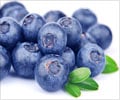The US government Tuesday removed the artificial sweetener saccharin, long believed to be a potential cancer-causing substance found in diet drinks and chewing gum, from its list of

Saccharin, which is often seen in pink packets of Sweet 'N Low and has no calories, was added to the list in 1981 due to fears it caused bladder cancer in rats.
However, the National Toxicology Program and the International Agency for Research on Cancer "re-evaluated the available scientific information on saccharin and its salts and concluded that it is not a potential human carcinogen," the EPA said in a statement.
The EPA removed saccharin after being petitioned to do so by an association that represents low-calorie food sellers, the Calorie Control Council.
"Extensive research on human populations has established no association between saccharin and cancer. More than 30 human studies have been completed and indicate saccharin's safety at human levels of consumption," the CCC said.
Since the substance is so sweet, the average human consumer of the artificial sweetener "ingests less than one ounce" per year, a level that is considered safe for humans, it added.
Advertisement
The substance does not meet the definition of a carcinogen because it passes through the body unchanged and does not react with DNA.
Saccharin was already delisted as a potential carcinogen by the National Toxicology Program's Report on Carcinogens in 2000, which led to the removal of its warning label.
Source-AFP












